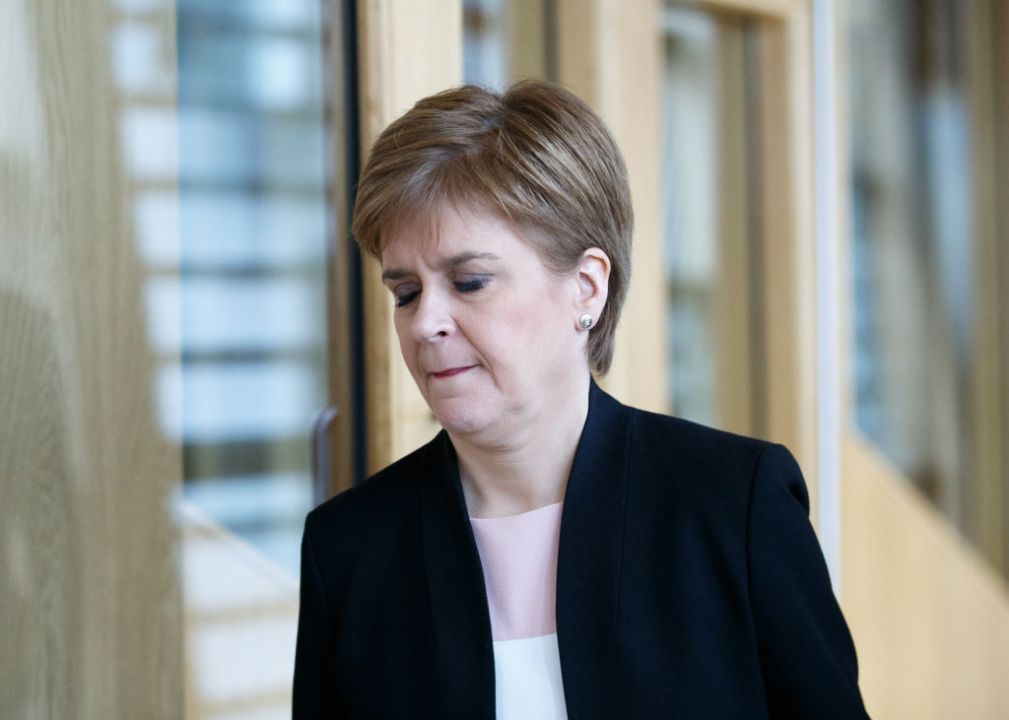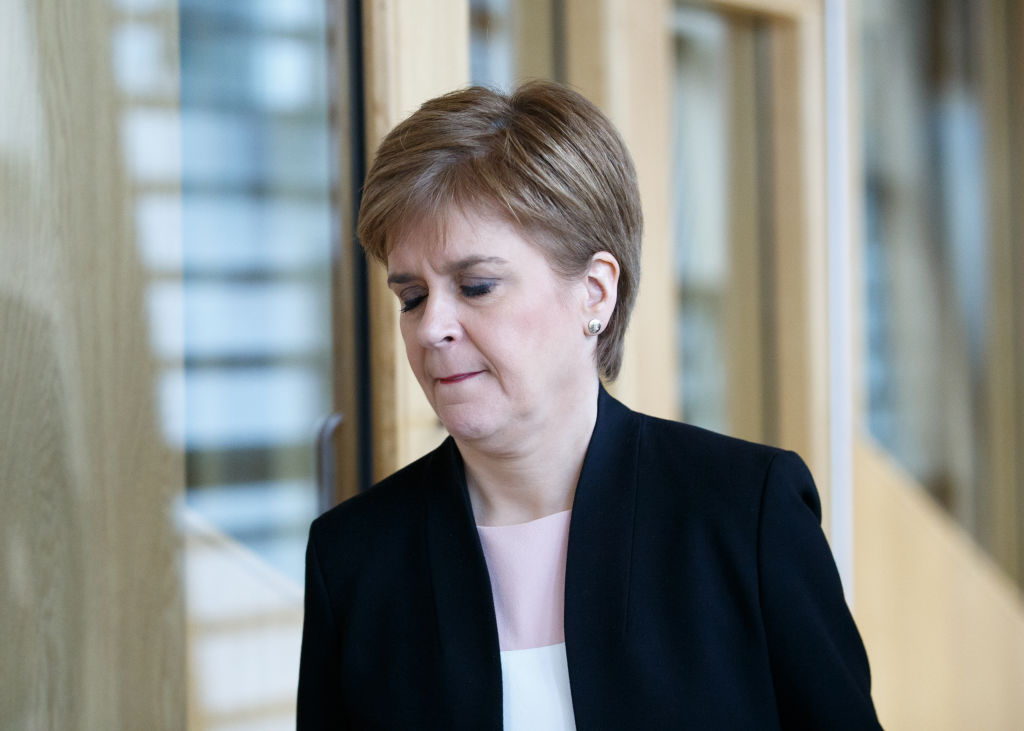Living in Scotland, it’s depressing to hear the way UK Government ministers talk about immigration. I have one proposal in front of me right now that advocates ‘a points-based approach’ as part of ‘a controlled immigration system to meet our own economic, social and demographic priorities and needs’. Anyone who wishes to ‘work, study or live’ here ‘will have to meet a set of reasonable and fair requirements to gain entry or approval to remain’. Predictably, for all the usual talk about attracting ‘skilled individuals from overseas’, there is the familiar obsession with numbers, especially of non-Europeans: ‘If there are higher than required numbers of non-European Economic Area/Swiss migrants… then this can be addressed through the points-based system’.
Priti Patel is pretty hardline. No wonder Nicola Sturgeon says the Home Secretary’s point-based system ‘can’t be justified’ and ‘would have a devastating impact on Scotland’. Alas, I have been sneaky. The above is not the Home Secretary’s immigration plans: it’s the SNP’s blueprint for an independent Scotland, as set out in the 2014 Scottish Government white paper. The SNP, unlike the Tories, is genuinely pro-immigration but the SNP, just like the Tories, is perfectly happy to pander to public opinion as and when required. An independent Scotland would run a liberal immigration regime right up until the first adverse poll landed on Sturgeon’s desk.
The SNP leader has latterly beatified herself as Saint Nicola of the Four Freedoms, patron saint of European citizens living in terror of sudden deportation from Brexit Britain. Goodness knows what she would make of the SNP politician who raised the prospect of EU citizens losing their right to remain in an independent Scotland. That was back in 2014, when the SNP was assuring Scots they could vote Yes in the referendum and stay in the EU while leaving the UK. When the European Commission and the European Council both contradicted this claim, the Nationalists sent out their most ruthless street-fighter to put the frighteners on Brussels. She warned:
‘We have set down a robust and common sense position. There are 160,000 EU nationals from other states living in Scotland, including some in the Commonwealth Games city of Glasgow. If Scotland was outside Europe, they would lose the right to stay here.’
Ach, I’ve been sneaky again. That ruthless street-fighter was none other than Nicola Sturgeon. Her supporters get mightily miffed when you bring up this ugly little incident, not least if you suggest this kind of nudge-nudge threat doesn’t sound all that different to what some of the more excitable Brexiteers came out with during the May years. Ah, but that’s different, you see. It’s the SNP: these would’ve been progressive deportations.
Sturgeon is engaging in rank hypocrisy, but what else do you expect on a day that ends in ‘Y’? It’s a shame, mind, because Priti Patel’s actual proposals are narrow, myopic and economically harmful, and it would be good to have a national political figure who can point that out without distracting baggage. The Conservatives’ restrictionist fixation with numbers not only threatens small business, the NHS, construction, agriculture and much of the service industry — it is out-of-step with changing public opinion. In 2016, immigration was the number-one issue, with 40 per cent of voters citing it as their top concern; today, it is down to 14 per cent. Of those who say they’re less concerned about immigration now, 51 per cent say it’s because the past few years have highlighted the contributions migrants make to the UK. Anti-immigrationism killed our EU membership but in doing so it has severely wounded itself.
Immigration is a particular problem in Scotland because of our demographic profile, which includes a declining birthrate and a rapidly expanding pensioner population. The CBI has warned that, within 20 years, just a third of Scots will be economically active, down from 64 per cent at present. Scotland needs immigrants for economic growth as well as staffing the NHS. The Home Secretary’s points system takes no account of these special needs. It sets the minimum salary for migrants at £25,600; the average salary in Scotland is £24,000. Yes, the SNP are forever on the hunt for a grievance but they have a genuine one here.
Downing Street was right to reject Nicola Sturgeon’s calls for a separate Scottish visa. As with everything she does, there is always an ulterior motive and that motive is always advancing the cause of independence. Hand the Scottish government even modest powers over entry requirements and they will use them to draw Scotland further away from the rest of the UK. A separate Scottish visa is more about the separateness than the visa. Saying No, however, is not enough. Bespoke provision could be made for Scotland at Whitehall level if there was the will or interest to do so. Priti Patel’s announcement makes clear there is not.
Where does this leave Scotland? Leaking population fast and with no way to plug the flow and an administration in Downing Street that, at best, doesn’t get it. If this situation continues, the idea of a separate Scottish visa will grow more attractive to business and other sectors not typically sympathetic to SNP policies.
Where does this leave the Scottish Conservatives? They are known to have lobbied Westminster to make its points system more accommodating of Scotland’s discrete needs. That request hasn’t only been rejected; it scarcely seems to have been considered. New Scottish Tory leader Jackson Carlaw’s welcome to the job has been a slap in the face from the Prime Minister. His team looks weak and without influence at Downing Street, which, of course, they mostly are.
Priti Patel’s immigration system is out of sync with English public opinion but it is also damaging to Scotland’s economic and demographic well-being. The Prime Minister promised to put the Union at the heart of his government. Making Scotland poorer is a curious first step.








Comments